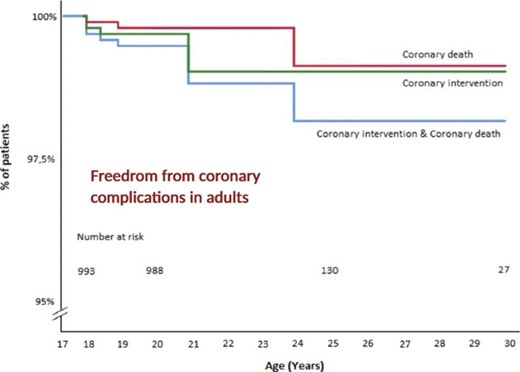-
PDF
- Split View
-
Views
-
Cite
Cite
L J Engele, B J M Mulder, J W Schoones, P Kies, A D Egorova, H W Vliegen, M G Hazekamp, B J Bouma, M R M Jongbloed, The coronary arteries in adults after arterial switch: a systematic review, European Heart Journal, Volume 42, Issue Supplement_1, October 2021, ehab724.1845, https://doi.org/10.1093/eurheartj/ehab724.1845
Close - Share Icon Share
Abstract
Coronary artery status in adults longterm after the arterial switch operation (ASO) is unclear. As a consequence, current follow-up strategies for coronary assessment remain controversial. We conducted a systemic review to provide an overview of coronary complications during adulthood and to evaluate the value of coronary imaging in adults after ASO, in light of current guidelines.
Studies describing coronary complications or coronary imaging after ASO in adults were considered eligible for review and analysis. Articles were screened for the inclusion of adult ASO patients and data on coronary complications and findings of coronary imaging were collected. In cohort studies with both adults (≥18 years) and non-adults (<18 years) only outcomes in identifiable adults were analyzed.
A total of 993 adults were followed with a median follow-up of 2.0 years after reaching adulthood. Myocardial ischemia was suspected in 16/192 patients (6.8%). The number of coronary interventions was 4 (0.4%) and coronary death was reported in 4 (0.4%) patients. The following coronary abnormalities were found by routine coronary computer tomography CT (cCT): stenosis (4%), acute angle (40%), kinking (24%) and interaterial course (11%). No coronary events were reported during pregnancy (n=45).
The reported number of coronary interventions (0.4%) and of coronary death (0.4%) during a median follow-up of 2 years in 993 ASO adults is low. Coronary abnormalities including acute angle, kinking and interarterial course were commonly found by cCT. The 2020 European Society of Cardiology (ESC) guidelines state that routine screening for coronary pathologies is questionable. However, based on current findings and in line with the 2018 American ACC/AHA guidelines we suggest a baseline assessment of the coronary arteries in all adult ASO patients. Thereafter, an individualized coronary follow-up strategy, based upon coronary findings, is advisable.

Freedom from coronary complications



